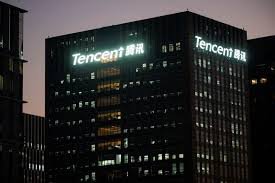The Tencent Music SM Entertainment stake is expected to grow significantly, as China’s Tencent Music Entertainment (1698.HK) is set to become the second-largest shareholder in South Korea’s prominent K-pop agency SM Entertainment (041510.KQ). The move was revealed through a regulatory filing submitted by South Korea’s entertainment giant Hybe (352820.KS) on Tuesday.
Hybe announced plans to sell its 2.2 million shares in SM Entertainment to Tencent Music for approximately 243 billion won (equivalent to about $177 million). The transaction is scheduled to be completed on May 30. This significant share acquisition is being closely observed by industry stakeholders and investors as it is poised to reshape shareholder dynamics within SM Entertainment.
Details of the Tencent Music SM Entertainment Stake Transfer Agreement
The share transfer agreement between Hybe and Tencent Music was formalized through official regulatory disclosures in South Korea. The 2.2 million shares being sold represent a substantial portion of SM Entertainment’s outstanding shares, enabling Tencent Music to secure a prominent ownership position.
The financial value of the deal, approximately 243 billion won, reflects the increasing valuations of K-pop companies amid growing global demand for Korean pop culture content. The price per share has been negotiated based on current market conditions and strategic interests of both parties.
Strategic Significance of Tencent Music’s Stake in SM Entertainment
Tencent Music’s investment in SM Entertainment marks a strategic expansion into the global K-pop market. SM Entertainment, known for managing high-profile artists and producing popular music content, holds a significant influence in shaping the K-pop industry.
By acquiring a sizable stake, Tencent Music is poised to strengthen its presence in the South Korean entertainment sector and enhance its competitive edge in music streaming and digital content platforms. This move aligns with Tencent Music’s broader strategy to leverage synergies between music production and digital distribution across Asian markets.
Market Reaction and Industry Implications
Following the announcement, the stock market showed a mixed response. Shares of SM Entertainment experienced moderate fluctuations as investors weighed the implications of Tencent Music’s increased involvement. Analysts pointed out that the acquisition could foster greater collaboration opportunities between Tencent’s digital ecosystem and SM Entertainment’s artist roster.
It was noted that the partnership might facilitate broader exposure of SM Entertainment’s content to Chinese audiences through Tencent’s extensive music platforms, potentially driving revenue growth for the K-pop agency. Furthermore, the investment by a major Chinese corporation is likely to encourage other foreign investors to explore opportunities within the South Korean entertainment industry.
Background on SM Entertainment and Hybe
SM Entertainment has long been recognized as one of South Korea’s leading entertainment companies, responsible for launching some of the biggest names in K-pop. The agency’s business model integrates music production, artist management, and multimedia content creation, enabling it to maintain a stronghold on the global K-pop phenomenon.
Hybe, the seller in this transaction, is another major player in the South Korean music industry, best known for managing internationally acclaimed group BTS. The decision by Hybe to sell its shares in SM Entertainment is part of its strategic portfolio realignment, enabling the company to focus on its core operations and investments.
Regulatory and Compliance Aspects
The transaction has been conducted in compliance with South Korean stock exchange regulations and disclosure requirements. Regulatory authorities have been kept informed to ensure transparency and protect investor interests. The official filing detailed the terms of the sale, timelines, and financial arrangements, adhering to corporate governance standards.
Such large-scale transactions between major shareholders are subject to scrutiny to avoid conflicts of interest and ensure fair market practices. In this case, the sale has been approved by relevant bodies and is expected to be finalized smoothly by the end of May.
Future Outlook for Tencent Music and SM Entertainment Collaboration
The acquisition sets the stage for potential collaborative projects between Tencent Music and SM Entertainment. Joint ventures in music production, live streaming concerts, and digital fan engagement platforms may be explored to capitalize on combined strengths.
Industry experts anticipate that this partnership will accelerate the globalization of K-pop, leveraging Tencent’s technological infrastructure and market reach alongside SM Entertainment’s creative talents. New content formats and cross-border promotions are expected to emerge as a result of the collaboration.
Broader Impact on the K-pop Industry
Tencent Music’s entry as a major shareholder in SM Entertainment underscores the increasing globalization and commercialization of the K-pop industry. Foreign investments are playing an important role in fueling growth, innovation, and competitive dynamics within South Korea’s music business.
This trend is expected to continue as more international corporations seek exposure to the lucrative K-pop market. The integration of digital platforms and entertainment content is driving a new era of music consumption, expanding K-pop’s footprint worldwide.
Conclusion: A Milestone Deal in K-pop Industry Evolution
Tencent Music’s planned acquisition of a 2.2 million-share stake in SM Entertainment from Hybe for $177 million marks a significant milestone in the evolving K-pop industry landscape. This strategic investment enhances Tencent Music’s position in the global music market while providing SM Entertainment with valuable partnerships and growth opportunities.
The deal exemplifies the growing interplay between content creation and digital distribution, reflecting broader trends shaping the entertainment sector in Asia and beyond. As the transaction is finalized, stakeholders will closely monitor its impact on market competition, artist collaborations, and fan engagement initiatives.


